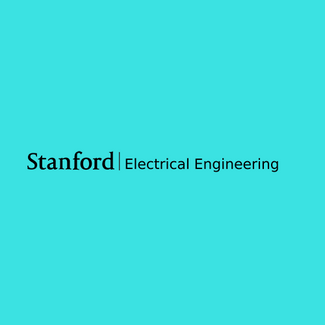
Ferroelectric Devices, Circuits and Architectures for AI Hardware Design
AllenX 101 Auditorium
Zoom ID: 93781858689; password: 287059
Abstract: This presentation will discuss the recent progress on doped HfO2 based ferroelectric devices and their implications on AI hardware design. After a survey of ferroelectric devices’ diverse applications that span from embedded memories towards DRAM and 3D NAND, we will dive into a new concept of non-volatile capacitor (nvCap) that leverages the small-signal non-destructive read in ferroelectrics. nvCap is a compelling candidate to enable the charge domain in-memory computing in a capacitive crossbar array that only consumes dynamic power. The key engineering goal of nvCap is to optimize asymmetric C-V characteristics to open up the large capacitance on/off ratio at DC zero voltage. Specifically, we first introduce the HZO-based MFM nvCap that demonstrates the proof-of-concept; and present the FeFET-based MFS nvCap that improves capacitance on/off ratio with reliability/scaling analysis on an industry 300mm wafer. We then perform a cross-layer benchmark to showcase the potential of using such nvCap for accelerating the image classification in the charge-domain. We also design and tape-out an integrated nvCap array with a 28nm foundry platform for further validation into silicon. Our recent efforts focus on developing in-house BEOL-compatible MFS nvCap based on an oxide semiconductor layer; and exploring new applications such as in-memory search and Ising machine annealing.
Bio: Shimeng Yu is the endowed Dean’s Professor of Electrical and Computer Engineering at the Georgia Institute of Technology. He received a PhD degree from Stanford University in 2013. He is elevated for the IEEE Fellow for contributions to non-volatile memories and in-memory computing. His 400+ publications received 33,000+ citations (Google Scholar) with H-index 83. He serves flagship conferences in the semiconductor field as technical program committee, such as IEEE International Electron Devices Meeting (IEDM), IEEE Symposium on VLSI Technology and Circuits, etc. Among Prof. Yu’s honors, he was a recipient of National Science Foundation (NSF) CAREER Award in 2016, IEEE Electron Devices Society (EDS) Early Career Award in 2017, ACM Special Interests Group on Design Automation (SIGDA) Outstanding New Faculty Award in 2018, Semiconductor Research Corporation (SRC) Inaugural Young Faculty Award in 2019, IEEE Circuits and Systems Society (CASS) Distinguished Lecturer in 2021, IEEE Electron Devices Society (EDS) Distinguished Lecturer in 2022, and Intel Outstanding Researcher Award in 2023, etc.